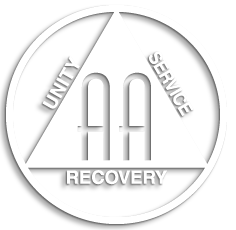South Carolina Alcoholics Anonymous
Intergroups in S.C.

Upstate Intergroup
Grand Strand Intergroup
Greater Columbia Intergroup
Tri-County Intergroup
What is an Intergroup or Central Office?
A central office (or intergroup) is an A.A. service office that involves partnership among groups in a community - just as A.A. groups themselves are partnerships of individuals. A central office is established to carry out certain function common to all groups - functions which are best handled by a centralized office - and it is usually maintained supervised, and supported by these groups in their general interest. It exists to aid the groups in their common purpose of carrying the A.A. message to the alcoholic who still suffers.
Functions of an Intergroup
The A.A. experience has demonstrated that central offices are helpful, particularly in populous areas....
Sometimes, however, central office ventures have bogged down in disputes over money, authority, and like matters - thus becoming less effective in carrying the A.A. message. It's not always clear why these troubles have come up, but often it's been because the proper functions of a central office were not clearly explained or understood, or there was some disregard of the principles in A.A.'s Twelve Traditions. So, the following suggestions have been made to outline the basic services a central office might offer:
- A.A. Inquiries: By providing an Alcoholics Anonymous listing in the local telephone directory, the central office may receive inquiries from those seeking help. They will refer the caller to a nearby A.A. group, where sponsorship may be arranged, or have a twelfth stepper contact them.
- Office Facilities: The central office can maintain a conveniently located office in which paid workers and/or volunteers are available to carry the message of A.A. to the alcoholic.
- Meeting Lists: At regular intervals, the central office may publish and distribute up-to-date lists of meetings and other information about local A.A. services.
- Information Exchange: The service office may function as a clearinghouse for the circulation and exchange of information among all the A.A. groups in the community....
- Local Committees on Public Information (P.I.) and Cooperation With the Professional Community (C.P.C.) in cooperation with district and area P.I. and C.P.C. committees:....
- A.A. in Correctional and Treatment Facilities: The central office can maintain contact with local groups in correctional facilities and treatment facilities, offering literature and prerelease A.A. contacts and arranging for A.A. speakers and visitors to meetings. When there is a correctional or treatment facility committee for this purpose, the service office may assist it through close cooperation with local hospitals and prisons....
- Local A.A. Events: An A.A. central office is a logical body to manage the details of an annual dinner, picnic, or convention, if the participating groups wish it.
- A.A. Bulletin or Newsletter: The preparation of a publication for periodic distribution to A.A. groups is often a function of the central office.
- Special Needs Services: Many central offices carry information on groups that are wheelchair accessible, or signed for deaf members. Some offices have TDD/TTY equipment for communicating with deaf alcoholics.
Communication with Districts
Communication is the key to working together - Central Office or Intergroup Office and General Service Area Committee or the District Committee and the General Service Office of A.A. In 1990 the General Service Conference stressed the importance of communication and recommended that delegates establish and maintain contact with offices in their areas to share Conference information and assure that central intergroup offices have a voice in the Fellowship through their existing service structure.
Try to find out what is going on by getting together from time to time with corresponding committees in your area. It is important to share ideas and discuss activities so as to avoid duplication of effort. It is not important who does the work (the General Service Committee or the Central Office or Intergroup Committee in your area) but that the work gets done - that help is there for the next alcoholic who needs us and our Fellowship.
Central offices and general service area committees are complementary, rather than competitive, A.A. operations. Both exist to help insure A.A. unity and to fulfill A.A.'s primary purpose of carrying the message.